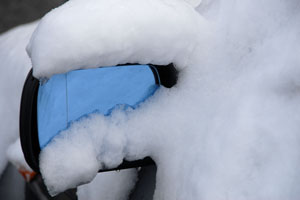Seasons change and that is a natural fact. We are reaching the time when winter snows are about to start coming down. Just as there are winter tires in contrast to the type used in the summer, there is a difference between summer and winter gasoline. A car owner should have an understanding of this to get a better idea of what exactly that high-performance car is running on. Knowing what makes summer gasoline different from the winter variety will also help explain why there are noticeable changes in prices at the pump.
 |
There any number of blends to gasoline and achieving the right level of octane is important. Part of the mix is known as the Reid vapor pressure (RVP). The RVP is the pressure of vapor in the gasoline blend at 100°F. It would ordinarily be somewhere in the neighborhood of 14.7 pounds per square inch (psi).When it comes to seasonal gasoline, the octane grade will stay the same, but the RVP is going to change. An important note when it comes to the summer type of gasoline is the outdoor thermometer readings. The weather can go over 100°F, and it is important that the RVP stay below 14.7 psi. The inability to do that can result in pressure building up in the gas tank, with the liquid being boiled and emitted from the car. That increases air pollution and is why summer gasoline blends are not allowed to be more than 9.0 psi, depending on location.
Winter weather creates a direct opposite situation. Temperatures are lower and the fuel has to be able to evaporate. Higher RVP levels are more volatile and allow evaporation in spite of colder temperatures. Low levels of RVP on subzero days will cause the car more difficult to start.
Butane is a gasoline ingredient with the highest RVP in any blend (Approximately 52 psi). The presence of butane in the gasoline is the biggest difference between summer and winter offerings. The amount of butane in the summer gasoline must be extremely small to prevent a higher than acceptable psi. Butane is an inexpensive ingredient and begins to show up even more as the RVP requirement increases. This explains why gasoline prices tend to go down as the weather gets cooler. Cooler weather allows for a higher RVP, and butane is used more frequently. Its cheap cost helps bring the price down. Another reason why gasoline prices start rising in late spring to early summer is that the refineries are adjusting to the new formulas that are required by the EPA. There is a trade-off to all of this. The EPA has mandated that summer blend have more energy than the winter blend. It means summer blend is more expensive but at the same time, the gas mileage is going to be a little bit better.
At this point the gears in the mind of a consumer may start grinding. Why not work the differences a little bit to cash advantage? In other words, store less expensive winter variety in the garage and use it during the summer. It would allow for some cost savings or so it would seem. It is not a good idea to do that at all. Gasoline does not store very well in conventional containers. If you’re thinking of doing this you are running the risk of gasoline fumes in your storage area, and that is a definite fire hazard. Moreover, you are using a high butane content gasoline at the wrong time of the year. By using the winter variety in the summer time, when temperatures outside are considerably higher, you are contributing to air pollution in your area. That hurts the entire community.
A better understanding of the difference between summer and winter gasoline should put to rest a few suspicions. The oil and gas industry is not some major conspiracy constantly trying to manipulate fuel costs. The prices of gasoline do respond to the market, but they also are affected by EPA standards. There are times the year when gasoline is expensive because of the blend. Fluctuations in the market at given times will also play a part. The idea of gas suppliers sitting in the back room, trying to find a way to rob consumers is a paranoid fantasy. Factors other than market fluctuation are involved.
